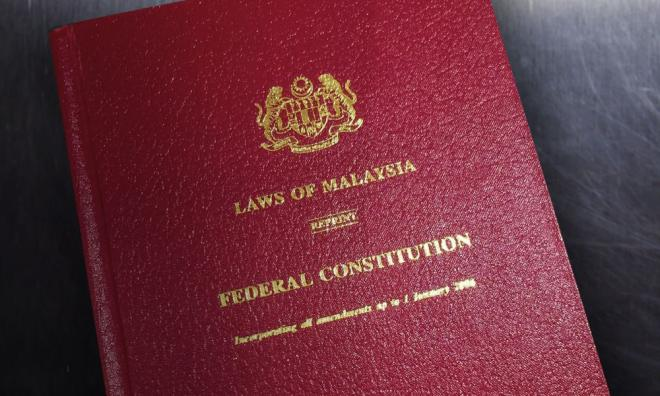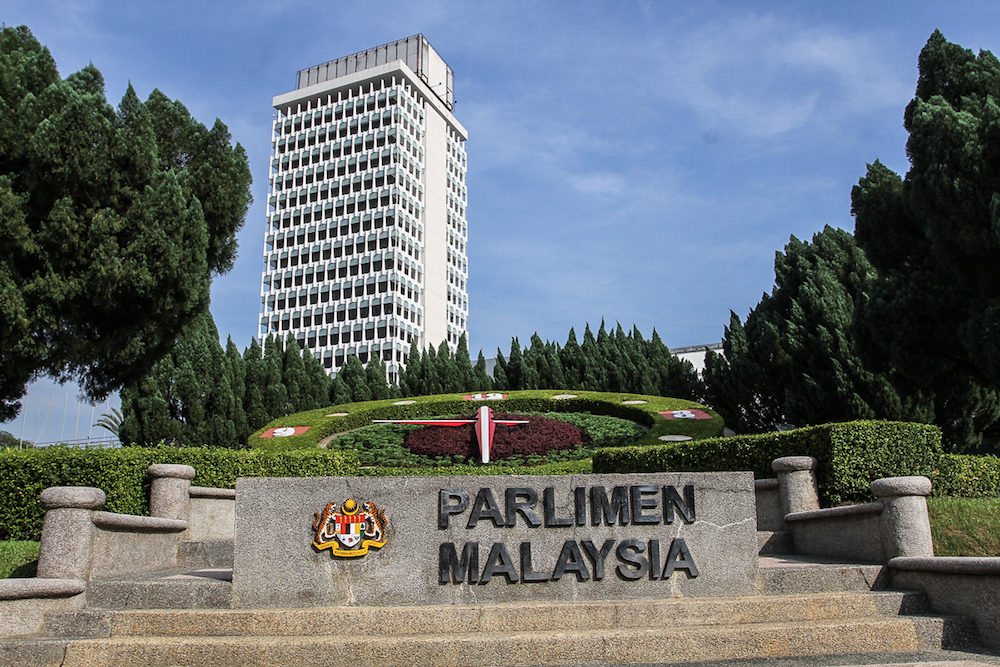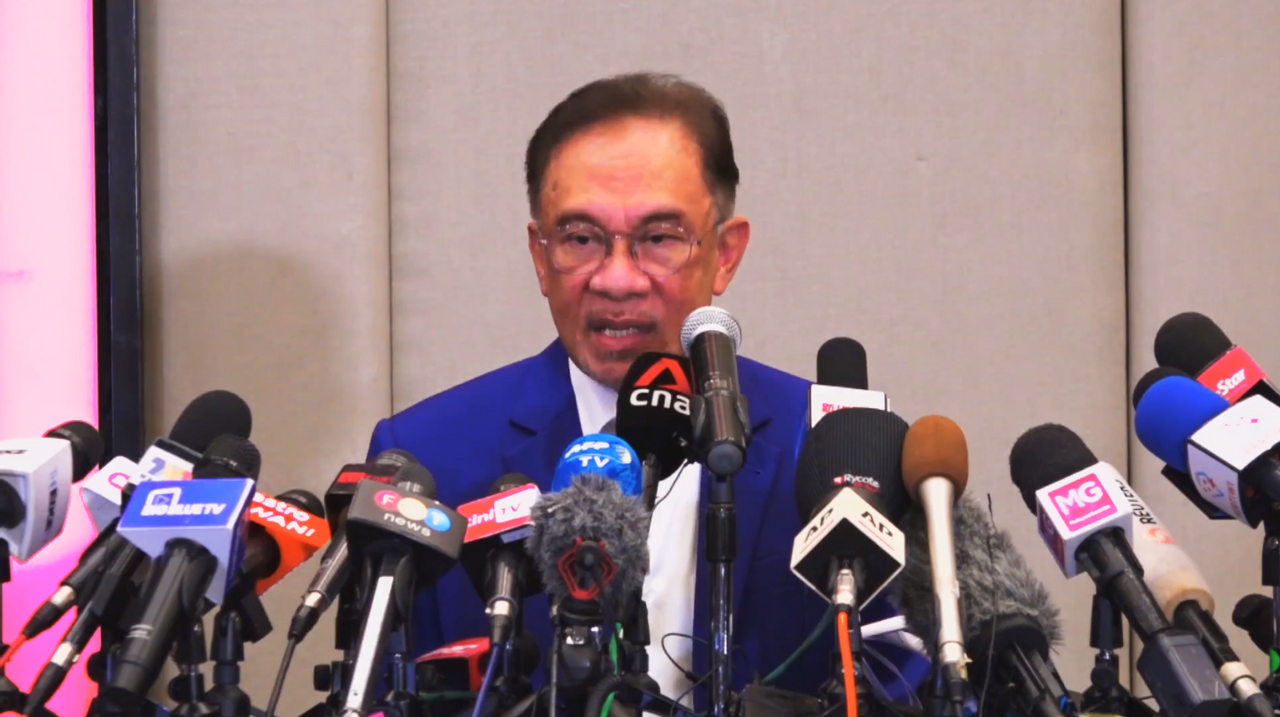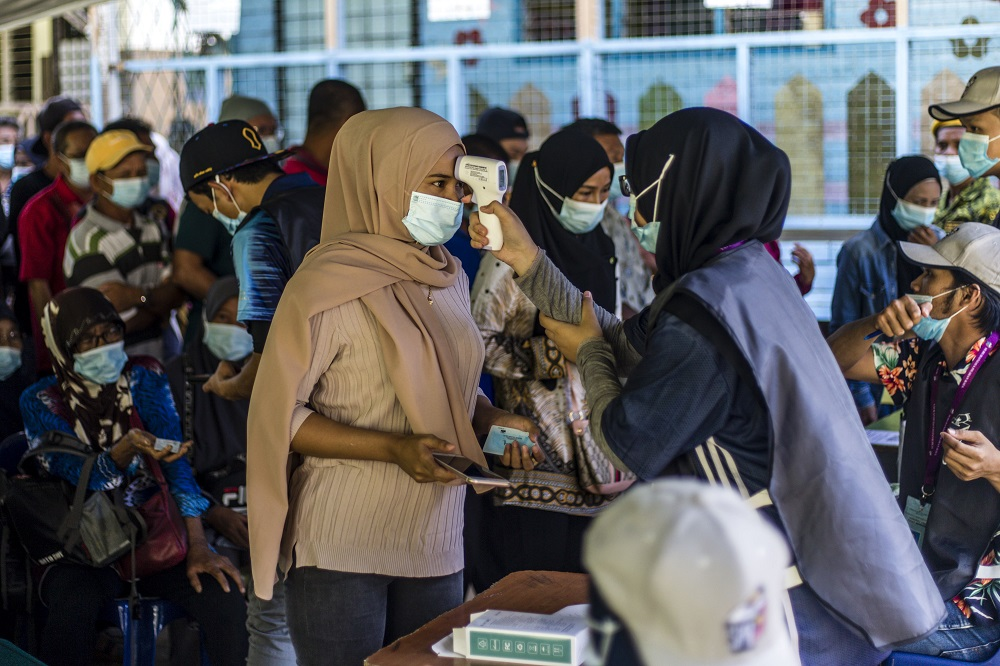Explained: What Is An Emergency And How It Would Affect Us During The Pandemic
Here's a brief summary of what would happen if a nationwide emergency is imposed in Malaysia.
Editor's Note: A nationwide state of emergency was declared on 12 January and it may last until 1 August 2021. Read about it here.
With COVID-19 cases and a looming political uncertainty caused by the ongoing counter-coup attempts, speculation is rife that the government may ask the Agong to impose an emergency
A state of emergency, or darurat in Bahasa Malaysia, is a form of control given to the Prime Minister or Yang di-Pertuan Agong if the Agong — under the advice of the government — believes that there is a public threat in the country.
Malaysia has declared an emergency numerous times in the past, such as a districtwide emergency at Muar and Ledang in Johor due to severe haze conditions in 2013, a statewide emergency in Kelantan due to the political impasse in the state in 1977, or more infamously, the nationwide emergency in 1969 following the 'May 13' race riots.
Each emergency had different levels of control over citizens.
However, if an emergency were to be declared now, officials at Putrajaya told The Star that only political activities will be affected this time.
They said business will be as usual for the economy and no curfews will be imposed on Malaysians.
So, to help you understand what an emergency would mean for us this time, here are eight things you should know:
1. Only the Agong has the authority to declare an emergency
Yang di-Pertuan Agong Sultan Abdullah Sultan Ahmad Shah with Prime Minister Tan Sri Muhyiddin Yassin during a pre-cabinet meeting at Istana Negara on 21 October.
Image via Istana Negara (Facebook)
According to Article 150 of the Federal Constitution, it is stipulated that:
"If the Yang di-Pertuan Agong is satisfied that a grave emergency exists whereby the security, or the economic life, or public order in the Federation or any part thereof is threatened, he may issue a Proclamation of Emergency making therein a declaration to that effect."However, the Agong must act under the advice of the prime minister or the Cabinet, as Article 150 of the Federal Constitution must be read with Article 40 within the same constitution:
"In the exercise of his functions under this Constitution or federal law the Yang di-Pertuan Agong shall act in accordance with the advice of the Cabinet or of a Minister acting under the general authority of the Cabinet, except as otherwise provided by this Constitution; but shall be entitled, at his request, to any information concerning the government of the Federation which is available to the Cabinet."Due to the provisions, that is why Prime Minister Tan Sri Muhyiddin Yassin's meeting with Yang di-Pertuan Agong Al-Sultan Abdullah Ri'ayatuddin Al-Mustafa Billah Shah yesterday, 23 October, sparked speculation that an emergency may be called soon.
2. An emergency can be declared even after the Parliament has been dissolved or suspended
According to constitutional expert and law lecturer at the Ahmad Ibrahim Kulliyyah of Laws, International Islamic University of Malaysia (IIUM) Shamrahayu Aziz, the Agong can declare an emergency any time, whether the Parliament is in session or not, or even after the Parliament has been dissolved.
Again, as long as the Agong is satisfied under the Prime Minister's or Cabinet's advice that there is a threat, then and only then the Agong can declare an emergency.
Shamrahayu said an emergency can be declared in the whole country, or part of the county as stipulated in Articles 150(1) and (2) of the Federal Constitution.
3. Once an emergency is declared, the Parliament — or the Agong if the Parliament has been dissolved — can do almost everything they want
During an emergency, laws can be passed instantly without the lengthy process of bills getting drafted, bringing them to the Parliament for debates and votes, and finally receiving the royal assent from the Agong.
The laws passed during this period are called Emergency Ordinance (EO) and they cannot be challenged by the courts, reported Malay Mail.
It is also worth noting that Article 150(4) of the Federal Constitution stipulated that the emergency allows the federal government to expand its jurisdiction into any states even though the states had the legislative authority over the matter prior to the emergency.
4. An EO can overrule the majority of the Federal Constitution
According to Shamrahayu, an EO has the same power as any ordinary act and can even overrule the Federal Constitution if the matter does not concern Islamic law or custom of the Malays, native law or customs of Sabah and Sarawak, citizenship, religion, or language, as stated under Article 150(6) and Clause (6A).
This means the federal government can amend Article 55(1) of the Federal Constitution which stipulates that the Dewan Rakyat must convene within six months after the last sitting.
However, a New Straits Times report noted that the government does not have to go to the extent of declaring an emergency over this as the Agong has absolute power to suspend the Parliament.
6. It is speculated that PN wants an emergency in order to pass Budget 2021
According to an exclusive report by The Star, a political observer is of the opinion that an emergency can be seen as a strategic move "avoid the budget from being defeated and to end political squabbles for the time being".
Budget 2021 is expected to be tabled in the Parliament from 2 November to 15 December.
If the budget is not passed, it will be difficult for the government to allocate money to ministries and relevant departments for the purpose of serving the rakyat. It would also mean that PM Muhyiddin doesn't command a majority and can face pressure to step down.
Budget 2021 is especially crucial at a time when the country is in an economic downturn due to the COVID-19 pandemic.
"With a state of emergency, the Parliament will no longer be in effect. The budget would be presented to the Cabinet and it can be approved without the vote from all 222 MPs," said the political observer.
Since rumours of a possible emergency emerged, Bersih 2.0 has stepped up to urge the Opposition to agree not to vote against the PN government's budget so that the COVID-19 relief budget can go through, reported Malay Mail.
7. Declaring an emergency will render the Opposition powerless and attempts to topple the government will not come into play
As mentioned earlier, during a state of emergency, the Prime Minister and his Cabinet will be empowered whenever they enact any EO that favours them and it can potentially be used to overrule articles in the Federal Constitution that deal with the country's democratic process.
This will, in return, render the Opposition powerless if they attempt to invoke Article 43(2)(a) of the Federal Constitution, which allows the Agong to choose a new Prime Minister whom the Agong thinks commands the majority support in the House of Representatives.
It has been over a month since Opposition leader Datuk Seri Anwar Ibrahim claimed to have 'formidable' and 'convincing' support from MPs to form a new government.
He was even granted an audience with the Agong on 13 October to present a statutory declaration (SD) that allegedly proved that he has over 120 MPs backing him.
Members of the federal government have repeatedly censured the Opposition for trying to create political instability in the middle of the pandemic and undermine the welfare of the people.
8. An emergency can call off a by-election or a snap poll
Voters queuing at a polling station in Sabah during the state election on 26 September.
Image via Firdaus Latif/Malay MailSince yesterday, various Opposition members decried Muhyiddin's alleged attempt to declare an emergency as an 'overkill' move, citing existing laws as sufficient for dealing with the COVID-19 pandemic.
However, it is worth noting that while the Prevention and Control of Infectious Diseases Act 1988 can empower the government to call off big gatherings, it cannot call off a by-election, a state election, or a snap poll.
After the passing of former de facto law minister Datuk Liew Vui Keong, the Batu Sapi parliamentary seat has been vacant since 2 October.
According to The Star, the Election Commission has set 23 November for nomination day and the by-election must be held on 5 December.
If there's anything we have learned from the Sabah State Election which concluded last month, it is that holding campaigns leading to an election spells disaster for COVID-19 re-emergence.
There have also been talks of holding the 12th Sarawak State Election, which must be held before June 2021.
On 20 October, Deputy Chief Minister Tan Sri James Masing entertained the idea of holding the election in the middle of the pandemic, saying countries like Singapore, New Zealand, and South Korea had held elections during the pandemic — thus, there is no reason Sarawak cannot do it too, reported Bernama.
However, if the country is in an emergency, an EO can overrule any Federal Constitution that demands the holding of elections of any level in the country for as long as an emergency is in place.






